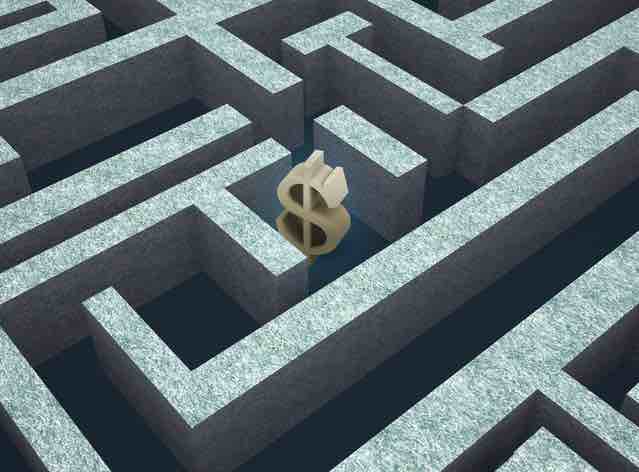MONEY: A USER GUIDE
eBook.html
Book I: How To Make Ends Meet

Introduction
Have you ever wondered what it would be like to not have to worry about money? If that sounds like something you might be interested in, you've come to the right place. So settle in, take about fifteen minutes to read what this is all about. If you decide it's not for you, no harm, no foul. Thanks for looking. If you think it might be the solution that you, or someone you know, has been looking for, then I am so glad you are here.
Before we get started, I want you to do two things: First, understand that success is measured not in things but rather, by the extent to which you are able to live life on your own terms.
Second, I want you to think of money as kinetic energy; its true value being its potential to determine the future.
Now, what would kind of future would you like to have?
For millions of hard-working people, the answer to that question is simply to have enough money to last until payday. Why? Why, in a world of abundant wealth, are so many people struggling making ends meet? Because they don’t know how to get their money's worth. They don't know how to spend it well.
————— ∞ —————
I realize that most people hate budgets. They claim that budgets don't work. Well, if that's true, then why does literally every successful company on Earth use one? Because they're fun? One woman told me that the reason she hated budgets is because they just showed her all the things she could never have. "I get it", I said, "the reason I never look both ways before crossing the street is because there might be a car coming".
The truth is, most people are unwilling to spend the time and effort required to make a budget that works. They blame the budget for their failure. The difference between me and most people is I am willing to devote the time and effort required. Was willing, I should say. Have done it, in fact.
For thirty years I have focused on how to live well on less money than I would have liked; how to get the greatest amount of satisfaction per dollar spent. At each stage I broke the process down to its fundamental components, then set out to re-order them, to operate efficiently.
I now spend no more than two to five minutes every morning, and ten to fifteen minutes whenever a credit card statement arrives. I never wonder where the money went or whether I’ll be able to pay the bills. I am able to make informed spending decisions any time, anywhere - not because I’m savvy or ambitious, but because the method I use has been refined and improved with continuous use, over a very long period of time. As a result, my family and I enjoy a relatively high standard of living, even on a sub-median income. We don’t stress over money, don't want for anything, and don't go without. Our needs are met, and we have no debt.
For the past ten years, I have toyed with the idea of sharing what I know, because so many people stand to benefit from it. At first I thought, for maximum impact, I would target young adults, high school students, or kids trying to earn their GED. Because, with no financial responsibilities, no debt to speak of, and no harmful spending habits to unlearn, they constitute the demographic that could most easily implement a sound spending plan. Ironically, and probably for the very same reasons, they seem unable to recognize the value in knowing how to spend well. They have not yet learned how difficult it is to recover from a spate of poor spending decisions. There's no incentive to handle money responsibly.
So I am appealing to their parents: battle-weary earners/spenders who, perhaps having lived through difficult times, know first-hand that it is better to avoid financial problems than to try to overcome them. They will recognize the value of as sound spending plan, and, out of concern for their children, will take the time to review this material, and perhaps convince their children to do likewise.
What I find most perplexing is that public schools don't teach students how to handle money responsibly. It isn't difficult. A child of six or seven, given a small weekly allowance and permitted to spend it any way s/he wants will, by age nine or ten, without any guidance whatsoever, have developed rudimentary skills. The time to learn is when the risks are small, and the consequences inconsequential. Public education does our young a tremendous disservice sending them out into the world unprepared, to learn by trial and error from their mistakes.
Underprivileged kids with little or no opportunity to spend money growing up are at an even greater disadvantage. Might as well tape a “Kick Me” sign to their backs as let them graduate unaware of what awaits, when even a few, relatively minor poor decisions could prove disastrous. For, in a culture that rewards those who claw their way to the top, everyone at the top has claws.
It doesn’t have to be. There’s nothing terribly difficult about handling money responsibly: Spend Less Than You Earn; Save In Advance. Two rules. You can say it in six words: Don't Spend Money You Don't Have.
Conclusion
I’d like to thank my wife, Linda, who kept me fed and watered during the writing of this book, for innumerable proof readings and grammar checks willingly performed, and for spot-on suggestions regarding presentation.
————— ∞ —————
————— ∞ —————
Proceed to the ORIENTATION